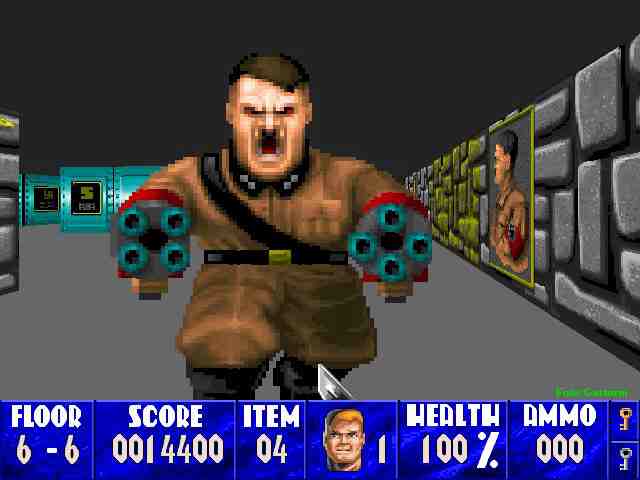This post has not been edited by the GamesBeat staff. Opinions by GamesBeat community writers do not necessarily reflect those of the staff.

I’m going to be straight with you all about this: I’m very much a PC gamer at heart. Consoles provide me with a more affordable way to game at a decent level, but it’s PC gaming that I love.
I grew up in the 1990s when gaming was really finding its feet. The homebrew programming scene on the Apple II and early x86 machines was where I had my first experiences. Commander Keen, Wolfenstein 3D, The Secret Of Monkey Island, and Wing Commander were the whole world of gaming for me.
It’s not just the games, though. That spirit of experimentation, openness, and determination defined the industry we see today and fuels the amazing modding and indie development scenes on the PC that you just cannot find on a home console.
Where else can one man make a zombie mode for his favorite first-person shooter and have it played by over a million people? You certainly won’t find that on the Xbox or the PS3 because Microsoft and Sony simply won’t allow it.
It is the dawn of a new age for Microsoft. No longer the dominant tech company in the world, it has been superseded by the slick, relatively closed, and ruthlessly proprietary Apple. Microsoft’s attempts at control over Xbox Live have left indie developers frustrated and forced it’s ability to bring unique titles to Xbox Live Arcade fall behind that of the PlayStation Network and Steam.
With Windows 8, it is attempting to impose the same kind of control that Apple has. Unfortunately, things are not looking good.
The main reason why the PC rose to popularity was its modularity, its flexibility, and its openness as a platform. This openness fostered names that we now see as industry legends. Guys like John Carmack, Chris Roberts, Warren Spector, and Gabe Newell all made their names with PC games, and people like Markus “Notch” Persson (creator of Minecraft) are carrying that spirit forward and showing new generations of would-be coders what is possible with the medium of video games.

Microsoft seems to be hell-bent on changing that. It’s imposing a new certification system onto all software that wants to run on the new OS, and is placing strange limits on what can be sold on the new Windows 8 app store (like banning all 18-rated games). It has seen the success that Apple has had and is trying to force that template onto the PC, but it won’t work.
The reason why is simple: Apple’s current platform has been closed from the start and the barriers to entry are fairly low, especially for those wanting to code for iOS. The PC is a whole different animal. It has been open for so long that any attempt to reign it in will be met with outright rebellion.
The dominance of the PC market came because Microsoft was willing to let users do as they please as long as they didn’t mess with Windows itself, and it even gave gamers the tools to do it with DirectX.
Markus Persson has already stated publicly that he will not be seeking Windows 8 certification for Minecraft, Gabe Newell’s Valve is building a version of its phenomenally successful digital platform, Steam, for the free Linux-based Ubuntu operating system, and Blizzard’s Rob Pardo has also expressed deep concerns about the direction that Microsoft is taking with Windows 8.
The measures taken by Microsoft to reign in the PC with Windows 8 feel like it’s trying to close the stable door after the horse has bolted, been stolen, and sold for glue.
Launching the new Surface tablet alongside Windows 8 is a clear indication that it wants a slice of Apple’s pie and it seems to be blindly adopting their approach without considering the strengths of the PC platform.
The launch of Windows 8 will spell the beginning of a very precarious time for gaming on the PC, and Microsoft’s future hinges on whether it can make PC gamers see that the changes it brings are largely a good thing.
